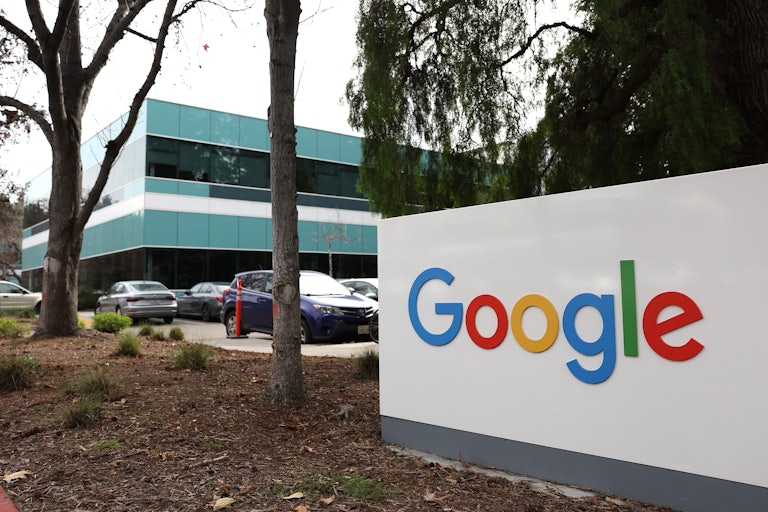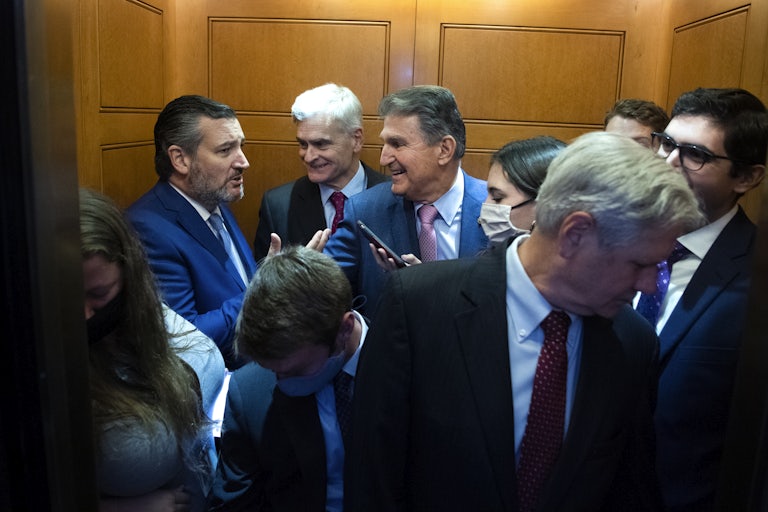YouTube Contractors Lead First Strike in Google History
The YouTube Music contractors are protesting a forced return to the office, after most of them were hired remotely to begin with.

On Friday, in Austin, Texas, over 40 YouTube Music contractors are striking in what is believed to be the first time a group of Google workers will go on strike.
The workers—who are technically employed by Cognizant, a subcontractor of Google’s parent company, Alphabet—are striking in response to an order to return to the office in Austin by February 6. They argue the mandate is an unfair labor practice as many of them cannot afford to pay for relocation (travel, childcare, and beyond) while they’re paid just $19 an hour. A majority of them were hired remotely, nearly a quarter not even based in the state.
The workers, responsible for managing music content for YouTube’s 2.1 billion monthly worldwide users, argue the forced return is an unfair labor practice and retaliation to their organizing. A supermajority of the YouTube Music workers, members of Alphabet Workers Union-CWA, filed for union recognition from the National Labor Relations Board in late October.
Workers are awaiting the NLRB to rule on their union recognition and on recognizing Alphabet and Cognizant as joint employers—forcing both companies to negotiate. The union sees the return to office order as a violation of labor law that mandates fair union voting conditions, and says workers would negotiate return to office policies after a successful union election.
As of now, the union says both companies scapegoat the other for policies like the return to work mandate, muddying the waters of which entity is actually pushing the mandate and where exactly workers can seek accountability. And while Alphabet still exercises control over companies like Cognizant, subcontracting enables them to treat workers worse.
“The result of this two-tiered system is that full-time Google employees receive dramatically higher pay benefits, while contractors are treated as second-class workers,” Music Generalist Sam Regan explained to The New Republic.
Workers attempted to express their objections on numerous occasions. They conducted a mass email campaign, collecting testimonials as to how the policy would negatively impact workers. On January 20, workers submitted a letter to Cognizant CEO Ravi Kumar, demanding that he honor his previous support for flexible work arrangements. Receiving no response, workers filed an unfair labor practice charge with the NLRB. And now they are striking.
The strike joins other action from the Alphabet Workers Union-CWA nationwide. On Thursday, workers rallied outside Google’s New York City office in response to Alphabet laying off 12,000 employees. On Wednesday, Google Raters—workers who train, test, and evaluate algorithms that drive Google’s reportedly 81 percent revenue-generating search function—delivered a petition demanding better working conditions. Namely, these workers are excluded from Alphabet-wide minimum standards ($15/hour, health care, tuition reimbursement, and more). The so-called “ghost workers” driving Google’s profits behind the scene are demanding to be compensated at least to the bare minimum.
While the workers are part of an ongoing story of tech companies mistreating their workers, this incident is unique as the workers are not exactly “tech” workers. “We’re actually all musicians and music industry workers. So our culture is really built around the love for music,” Regan explained. “For me, this is the most interesting and inspiring team that I’ve ever worked with at a job. And we think that over the past three years, since we began working remotely, our team metrics have been incredible. We’ve more than proven that we’re capable of delivering excellent work at the highest level.”
The workers are holding a press conference outside the Google Austin office at 12 p.m. E.T., which can be viewed here.








